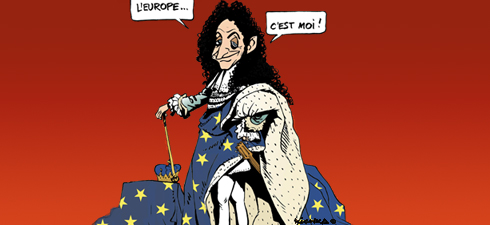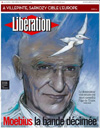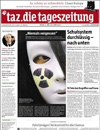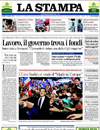Nicolas Sarkozy "wants to end sieve Europe", headlines Le Figaro. At a campaign meeting attended by tens of thousands of his supporters, President Sarkozy announced two major proposals: a demand for a review of the Schengen Agreement on the free movement of people, coupled with a threat to suspend French participation in Schengen if this condition is not met within 12 months, and a call for a Buy European Act, modeled on the Buy American Act in the US, which would give European companies an advantage when competing for public procurement contracts. For conservative Le Figaro, Nicolas Sarkozy has taken on the role of "an advocate for Europe", which was the subject of more than half of his speech —
The presidential campaign, which many believed would degenerate into squabbles over side issues, has finally got off the ground. Yesterday in Villepinte, Nicolas Sarkozy offered France a useful reminder of the importance of Europe in the destiny of the country [while] François Hollande continues to brandish his diminutive fists to demand a renegotiation of the European Fiscal Compact […] To reconcile the French population with Europe, a "political Europe that protects" and which must not be a "sieve", Nicolas Sarkozy wants to readjust ineffective mechanisms, reinforce convergence between states, and protect borders. This is the reason for the review of so-called Schengen Agreements, which do not take sufficient account of migration flows into the Union, at a time when member states do not have the resources to maintain their generosity.
On the contrary, left-wing daily Libération argues that in his speech of yesterday, Nicolas Sarkozy —
… attempted to assume the air of a statesman like Mitterrand who was careful to nurture popular support for the European project. But not everybody can be Mitterrand. In his decision to issue arrogant edicts on the issue of immigration, Nicolas Sarkozy has dragged Europe into the mire of his electioneering.
For its part, news website Mediapart points out that —
… the recourse to ultimatums which are presented as a method of governance is inspired by major populist leaders in Europe: in particular the conservative nationalist Lech Kaczynski, who was the author of several theatrical outbursts on the European stage during his time as Polish president, [...] Czech President Vaclav Klaus and even the Hungarian leader Viktor Orban.
In Berlin, alternative daily Tageszeitung notes that French President Nicolas Sarkozy “has moved a few steps to the right” —
A bit further and he will fall into the arms of the Front National’s Marine Le Pen. [...] Will Angela Merkel continue to support her Nicolas no matter what happens? With other conservative government leaders, she took up a position against the socialist candidate François Hollande, who wanted to flesh out the fiscal compact, but not to torpedo it. Now it seems that Sarkozy is eager to modify four European treaties. France remains as baffling as ever.
According to La Stampa’s Brussels correspondent Marco Zatterin, a “stressed Sarkozy” is trying to wow far right voters by attacking Schengen, even if it means contradicting his support for last year’s reform proposal that put control of the border union in Brussels’ hands. In any case —
… if he is elected again, he will probably find a way to do a U-turn, like the one he did in 2008 when he began the summer as a eurosceptic and finished it as a founding father of Europe.
Do you like our work?
Help multilingual European journalism to thrive, without ads or paywalls. Your one-off or regular support will keep our newsroom independent. Thank you!
















